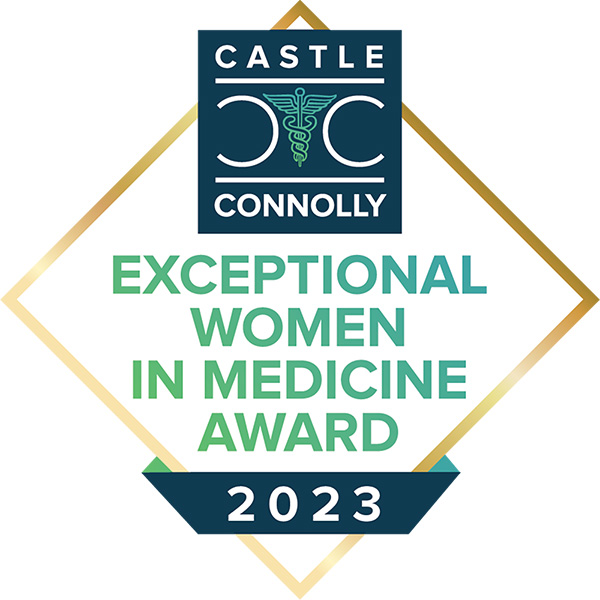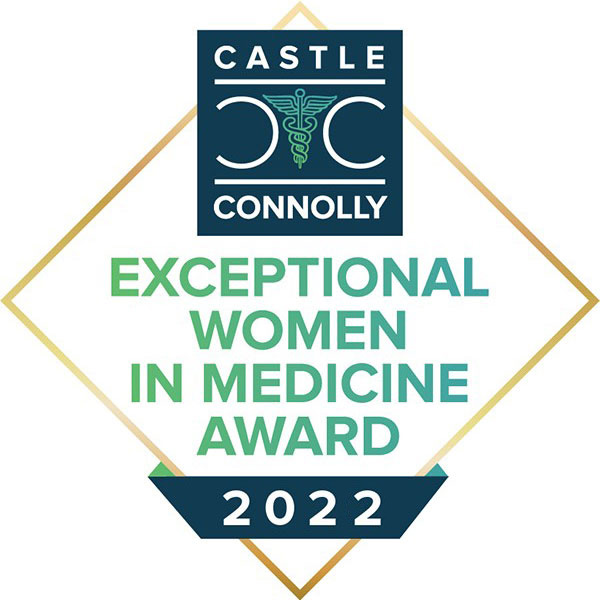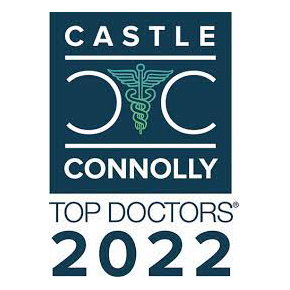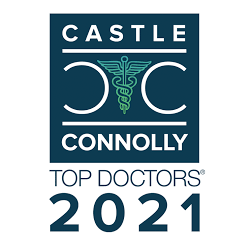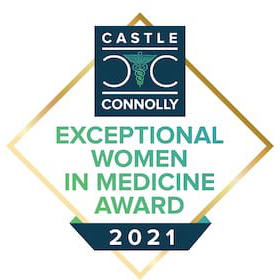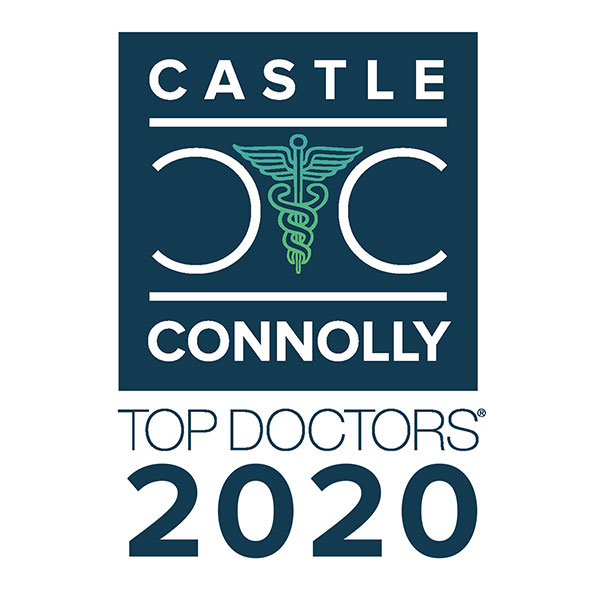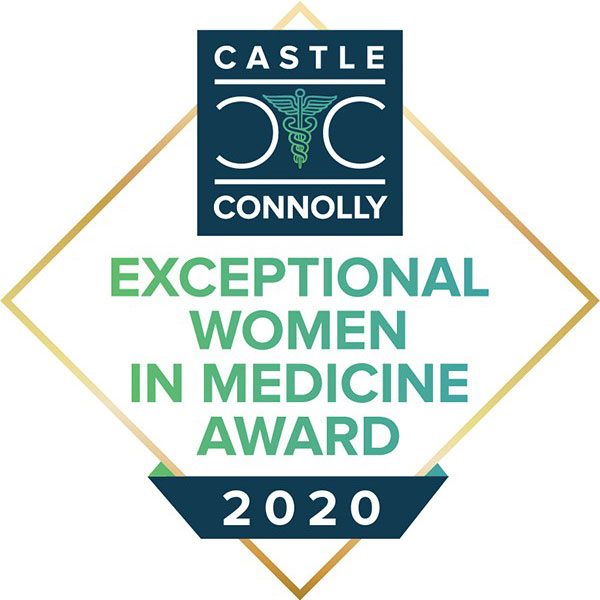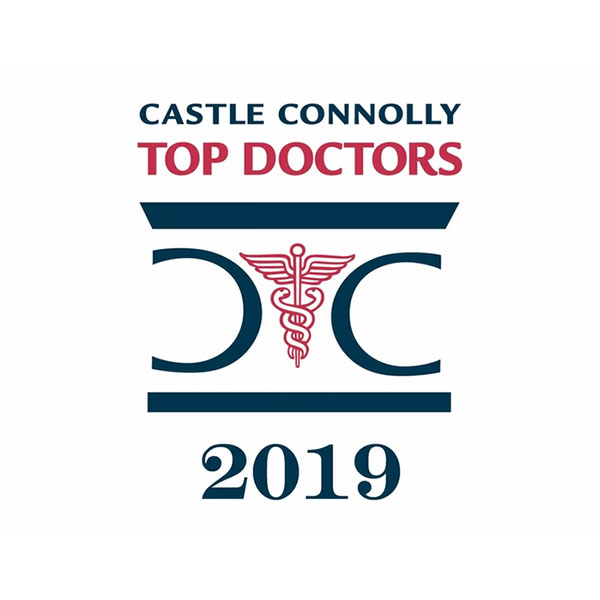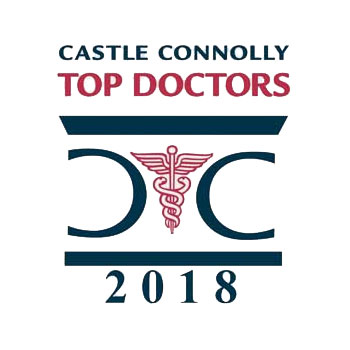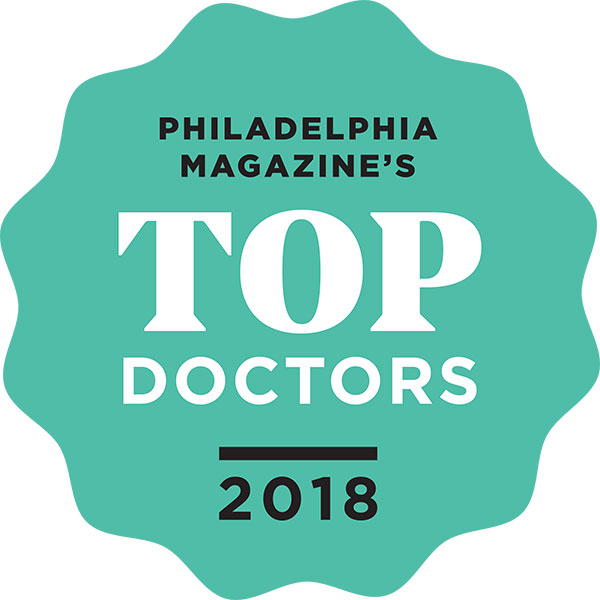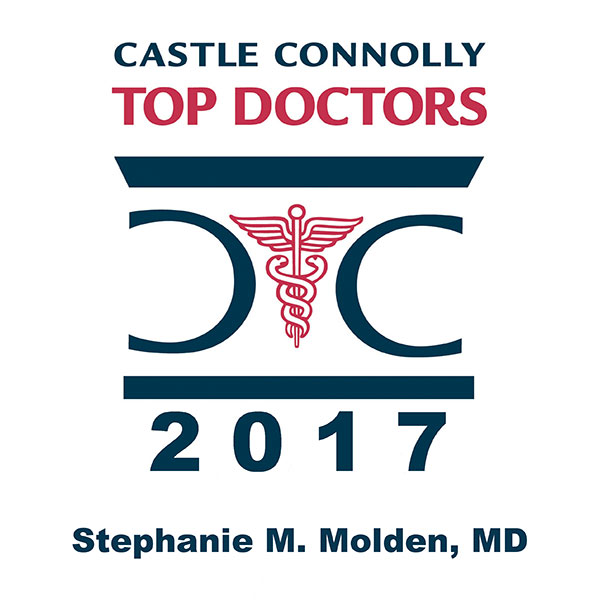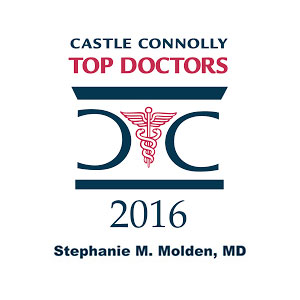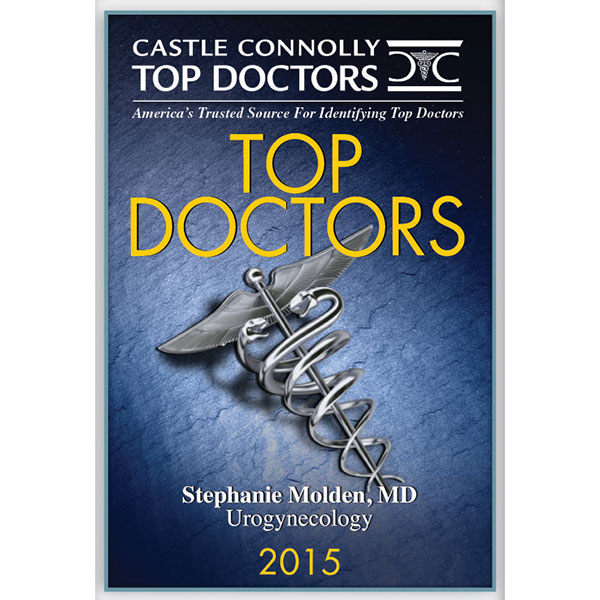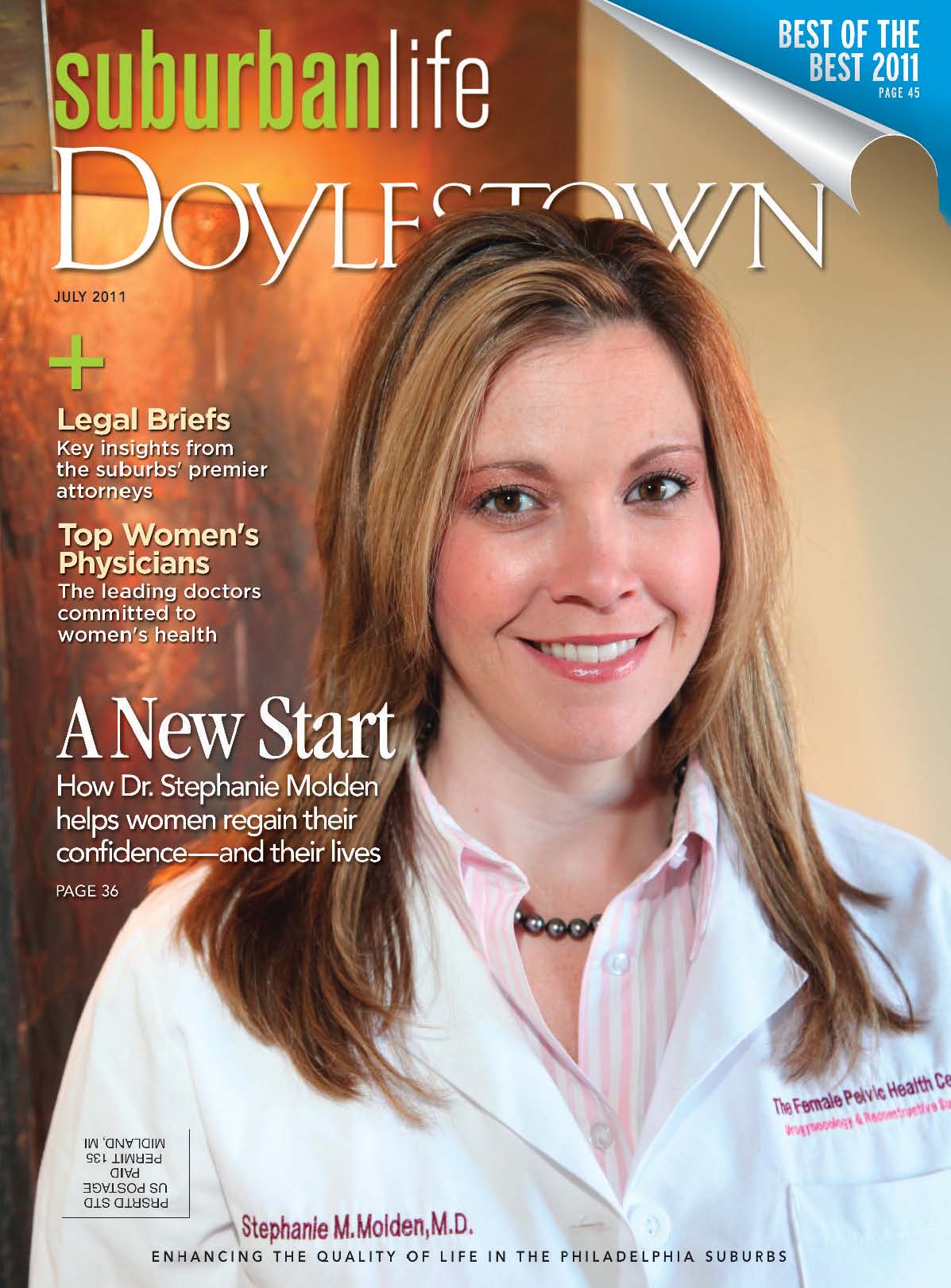 This article appeared in the July 2011 issue of Suburban Life Doylestown.
This article appeared in the July 2011 issue of Suburban Life Doylestown.
A New Start
How Dr. Molden helps women regain their confidence—and their lives
by Jennifer Updike
Women throughout the greater Philadelphia area are regaining hope, confidence and, in a way, control over their lives—and they have Dr. Stephanie Molden to thank.
Dr. Molden, founder of the Female Pelvic Health Center in Newtown, treats distressing and sometimes debilitating symptoms that most women will discuss only in whispered tones … if they choose to discuss them at all: feminine-health issues such as pelvic organ prolapse (“dropping” of the uterus, vagina, rectum, urethra or bladder); urinary incontinence; recurring urinary-tract infections; and lingering bladder pain, among others.
Although most of these conditions are typically not life threatening, they can prevent an otherwise healthy woman from living her life to the fullest.
“We often refer to women who experience these issues as suffering in silence because women don’t always talk about these concerns with their physicians; a lot of women think it’s normal, even though it’s not, and not all physicians ask,” says Dr. Molden, who’s also holds the titles of Director of Urogynecology and Director of Robotic Surgery at St. Mary Medical Center in Langhorne.
“Sometimes it’s the last thing to consider because women—especially older women—just think this is the way it is and that they have to live with it,” she adds, “but we can help them improve their quality of life.”
The most common issues treated by Dr. Molden and her all-female staff at The Female Pelvic Health Center are related to the loss of bladder control. Urinary incontinence is a problem experienced by women of all ages. In fact, 30 percent of women age 65 and older suffer incontinence. Commonly, incontinence can be related to problems associated with pelvic structure support, specifically prolapse; one in five women over the age of 60 undergoes surgery for prolapse, according to Dr. Molden.
Until recently, women suffering from these kinds of problems did not know where to go and whom to see for expert treatment. With the steady growth of The Female Pelvic Health Center, Dr. Molden has become one of the nation’s premier authorities in the growing field or Urogynecology—it has been in existence for less than 20 years—though still largely underserved.
Dr. Molden earned her Doctor of Medicine degree from the University of Virginia, and completed her residency in obstetrics and gynecology at Abington Memorial Hospital, where she served as chief resident. She is also one of the few doctors in the tri-state area to complete a three-year fellowship in Urogynecology after her general OB/GYN training.
“I went into OB/GYN because I was interested in women’s health,” she says. “I quickly gravitated toward the surgical aspects of the field, and was encouraged by my mentors to consider subspecialty training. I decided to pursue Urogynecology training (now referred to as Pelvic Medicine and Reconstructive Surgery) in order to use my skills in a much needed medical specialty for women where I felt I could really make a difference.”
Dr. Molden has appeared on local and national news outlets, and has presented her unique research to members of organizations such as the American Urogynecology Society, the International Urogynecology Association and the Society of Gynecologic Surgeons. Dr. Molden also teaches and proctors new surgical techniques in her field to other physicians across the country.
Return to Normal
Dr. Molden prescribes the best possible treatment, whether surgical or nonsurgical, based on each patient’s individual urogynecologic symptoms. On the nonsurgical side, for example, the Center provides biofeedback therapy and pelvic muscle training to strengthen weak pelvic floor muscles as a way to help patients regain their control and confidence. On the surgical side, she performs minimally invasive procedures designed to minimize trauma to the body, reduce blood loss and lessen post-operative pain, among other benefits.
“Many of the treatment options have changed quite a bit in recent years—from biofeedback therapy to tibial nerve stimulation, which is a non-invasive weekly nerve treatment for the bladder,” says Dr. Molden. “Most of my patients now have the option of minimally invasive surgeries or repairs, and at most are spending one night in the hospital. … Not only are there cosmetic benefits to this kind of surgery, but it also offers a speedier recovery and quicker ability to return to a normal life.”
As Dr. Molden suggests, these minimally invasive surgeries, some of which include highly progressive robotic technology, can minimize discomfort and speed up a patient’s recovery time. Such technology is a core part of the Center’s approach to offering the latest treatment options and minimizing each patient’s anxiety and discomfort, all with the goal of restoring a patient’s confidence and improving her day-to-day life.
To date, Dr. Molden has performed more than 1,000 such surgeries. In April 2010, she performed the first-ever robotic procedure—a hysterectomy and sacrocolpopexy to treat prolapse, as well as a “sling procedure” to alleviate stress urinary incontinence—at St. Mary Medical Center using the da Vinci Si HD Surgical System. Furthermore, Dr. Molden was the first Urogynecologist to perform robotic surgery at St. Luke’s Hospital in Bethlehem.
The Female Pelvic Health Center continues to thrive in both patient base and capabilities. Although Dr. Molden’s training, education and experience are unparalleled in the greater Philadelphia area, the most valuable assets she and her staff can offer patients aren’t printed on a piece of paper and framed on a wall.
“It’s about trust and comfort,” she says. “We are all completely dedicated to helping our patients and committed to ensuring they feel comfortable throughout their experience. From the moment you walk into the office, it’s very serene—almost spa-like, as some patients have commented—from the color of the walls to the waterfall and the waiting-room TV. … There are no stark white walls here.
“We’ve really tried to make coming here a calming experience for patients who may be nervous to discuss their problems and concerns. Everything we do here is to decrease anxiety and put our patients at ease while delivering top-quality care and providing the most up-to-date treatment options.”
The Female Pelvic Health Center
760 Newtown-Yardley Road, Suite 115
Newtown, PA 18940
Website: www.fphcenter.com
E-mail: info@fphcenter.com
Phone: 215-504-8900
Office hours: Monday, 8 a.m. to 9 p.m.; Tuesday through Friday, 8 a.m. to 4 p.m.
Jennifer Updike is a freelance writer from New Hope.
Kim Billingsley is a freelance photographer from Doylestown.







